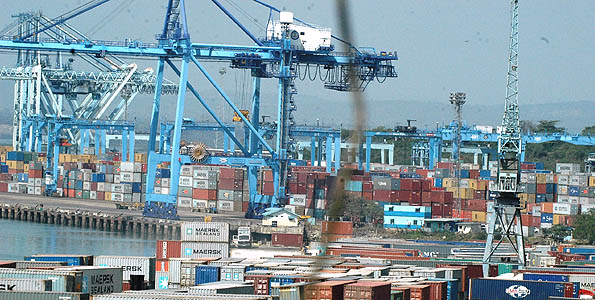Police Deny Sabotaging Plan To Get Them Off Roads
Police have rejected suggestions that the worsening traffic gridlock in Nairobi is...

Local car importers have expressed concern over reports that the Kenya Revenue Authority (KRA) will introduce a new cash bond on imported vehicles transiting through Kenya from Mombasa port.
According to Kennedy Onyonyi, the KRA spokesperson, the bond that will be equal to the price of the vehicle, is security to curb dumping.
Onyonyi told reporters in Nairobi recently that the bond would be cancelled as soon as the vehicles cross the Kenyan border.
“This is particular consignment bond, equivalent to the cost of the vehicle and not paid unless the vehicles do not get to their stated destination,” he explained.
However, local car dealers say the move will hurt their businesses.
Felix Singama, the chairman of the Association of Car Importers in Rwanda, said the bond could affect transactions between Mombasa and Kigali through unnecessary delays if it is not closely monitored by Kenyan authorities.
“As a landlocked country, the last thing we want are policies that may suffocate regional business transactions. I hope this won’t be the case,” he said.
Fred Seka, the president of the Association of Freight Forwarders and Clearing Agents of Rwanda, wondered why KRA was introducing the bond when the EAC bloc is trying to remove barriers that cripple business.
“We have been talking about the single customs territory that would eliminate the existing bonds so that goods can move freely within the region. So, when you introduce new bonds, it worries us. It also increases skepticism on whether we shall attain a single customs,” Seka said.
The East African Community member states had in principle agreed to remove non-tariff barriers (NTBs) by December 2012 to ease trade and stop revenue losses suffered by businesses in the region. However, experts have noted that in the absence of a legally-binding framework, efforts to introduce a single customs territory may largely depend on the willingness from individual states.
Robert Kayombya, a car importer in Kigali, said though the new cash bond could be for good intentions, it might affect efficiency in the movement of goods on the northern corridor.
“It means that we have to spend more time declaring and waiting for refund. When you lose time in business, you lose money,” Kayombya said.
Mark Priestley, the TradeMark East Africa country director, said under a single customs union protocol, such cash bonds are unwarranted because the protocol is about free and unhindered movement of goods and services.
“It’s a challenge that partner states have to look at carefully,” he said.
Adopted from: The New Times